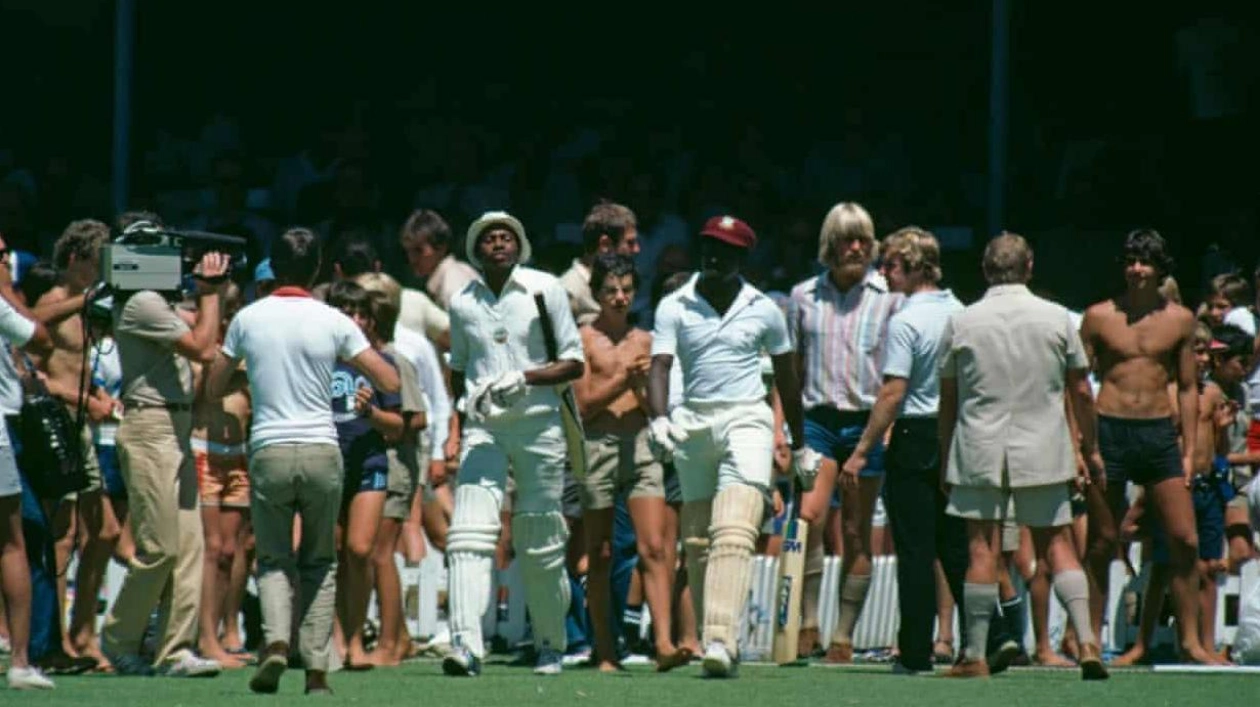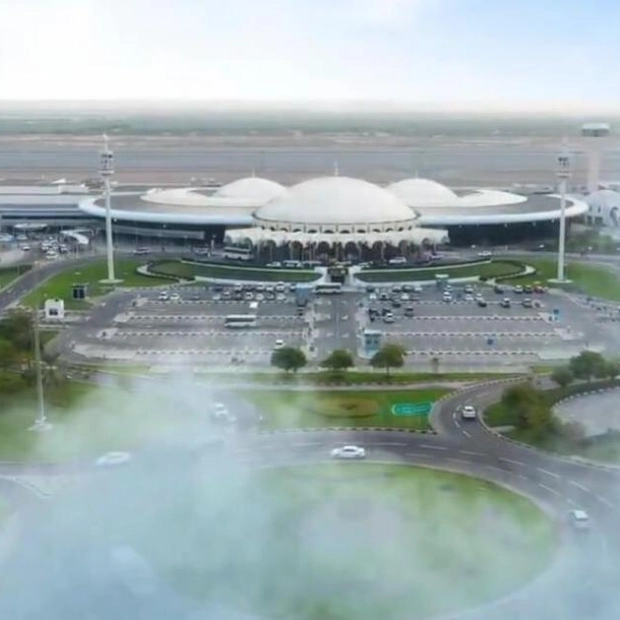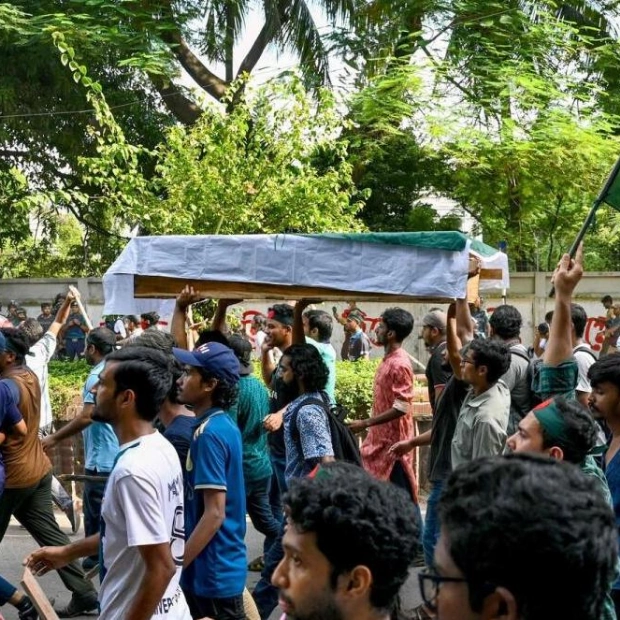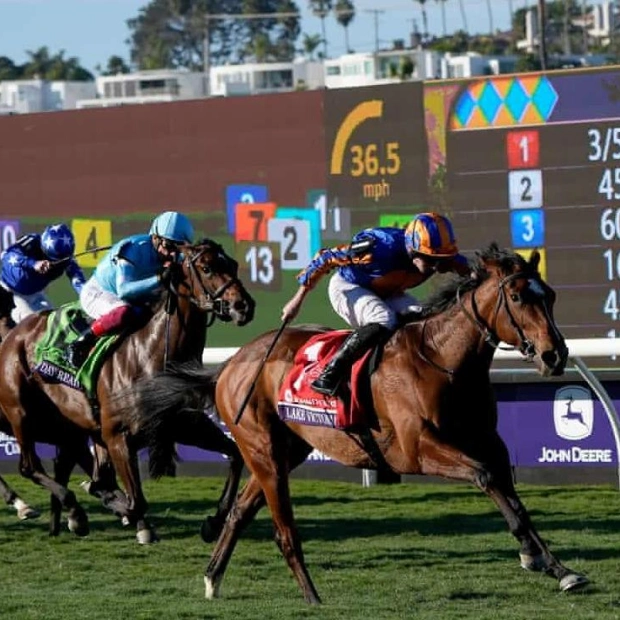As the England men’s team arrives at Bridgetown airport for their upcoming three white-ball matches in Barbados, the usual media frenzy is expected. However, nothing will match the chaotic scenes 41 years ago at the same location when the world’s press uncovered a shocking secret: 16 West Indies players were embarking on a rebel tour to apartheid South Africa. The rebels had planned to leave Barbados in complete secrecy, but their plans were dramatically exposed by Guyanese cricket commentator and journalist Joseph ‘Reds’ Perreira, who received a tip-off from a senior figure in West Indies cricket.
The identity of that informant was always a closely guarded secret—until now. During research for my new biography of the legendary 1950s Bajan cricketer Clyde Walcott, Perreira revealed for the first time that it was Walcott who provided the crucial inside information. On the morning of 11 January 1983, as Perreira was driving to Kensington Oval in Bridgetown, Walcott, then a manager and selector of the West Indies side, suddenly appeared at his car window, whispering: “There’s a rebel team going to South Africa. Do your homework,” before quickly disappearing.
For Perreira, this was the scoop of a lifetime. After verifying the information with a source at British West Indian Airways, he discovered that eight first-class Bajan cricketers were booked to fly to Miami the next day. Based on this, he broke the story to the world at lunchtime, without naming names. “Just about everybody came to the airport the next day, and my reputation was at stake,” he recalls. “None of the players were on the BWIA flight, and I was beginning to sweat, but then a porter told me he had seen one of the rebels, Alvin Greenidge, with his suitcase, and suddenly there was a bus screaming into the airport with the rest of them. They had used BWIA as a decoy and were traveling by American Airlines. I was a relieved man, I can tell you, but it was thanks to Clyde Walcott that I got the story. I’ve never told anyone that before—but it was him.”
Walcott, a staunch opponent of apartheid, was the last person the South African authorities would have wanted to know about the tour. How he got wind of the rebels’ departure remains unclear, but as a man with many contacts on the small island of Barbados, he was well-positioned to uncover secrets. Renegade tours by English and Sri Lankan players had occurred in the previous two years, but the idea that black cricketers from the Caribbean might follow suit was considered highly unlikely, despite the lucrative offers. The world’s press had no inkling of the plan—until Walcott set the story in motion.
The West Indies players who joined the rebel tour did so in defiance of a worldwide ban on cricketing relations with South Africa that had been in place since 1970. Led by the Jamaican batsman Lawrence Rowe, most were fringe members of the West Indies set-up, either not yet established in the team or on their way out. However, there were also players of the caliber of Colin Croft, Alvin Kallicharran, and Sylvester Clarke who could have played many Tests for West Indies in the future. Walcott was appalled by their actions, which he believed “brought no credit to anyone,” and fully supported the lifetime bans imposed by the West Indies board.
Fortunately for Walcott, the rebels’ bans barely affected selection deliberations. In the summer of 1983, only Kallicharran and Croft might have strengthened the side that progressed to the final of the third World Cup. Later, as president of the West Indies Cricket Board, Walcott was a powerful opponent of moves by the International Cricket Council to backslide on the ban against South Africa. After Nelson Mandela’s release from prison, he extended an invitation to South Africa to rejoin the Test match fold with a one-off encounter against West Indies at his home ground in Bridgetown in 1992. The following year, partly due to his principled stand on apartheid, he became the first non-white chair of the ICC, serving until 1997.
As for the rebels, few prospered from their decision, while many found themselves ostracized in their home territories. Walcott’s timely tip-off, which exposed them trying to sneak away unnoticed, put the rebels on the defensive even before their plane took off, and their reputations never recovered.
Source link: https://www.theguardian.com






